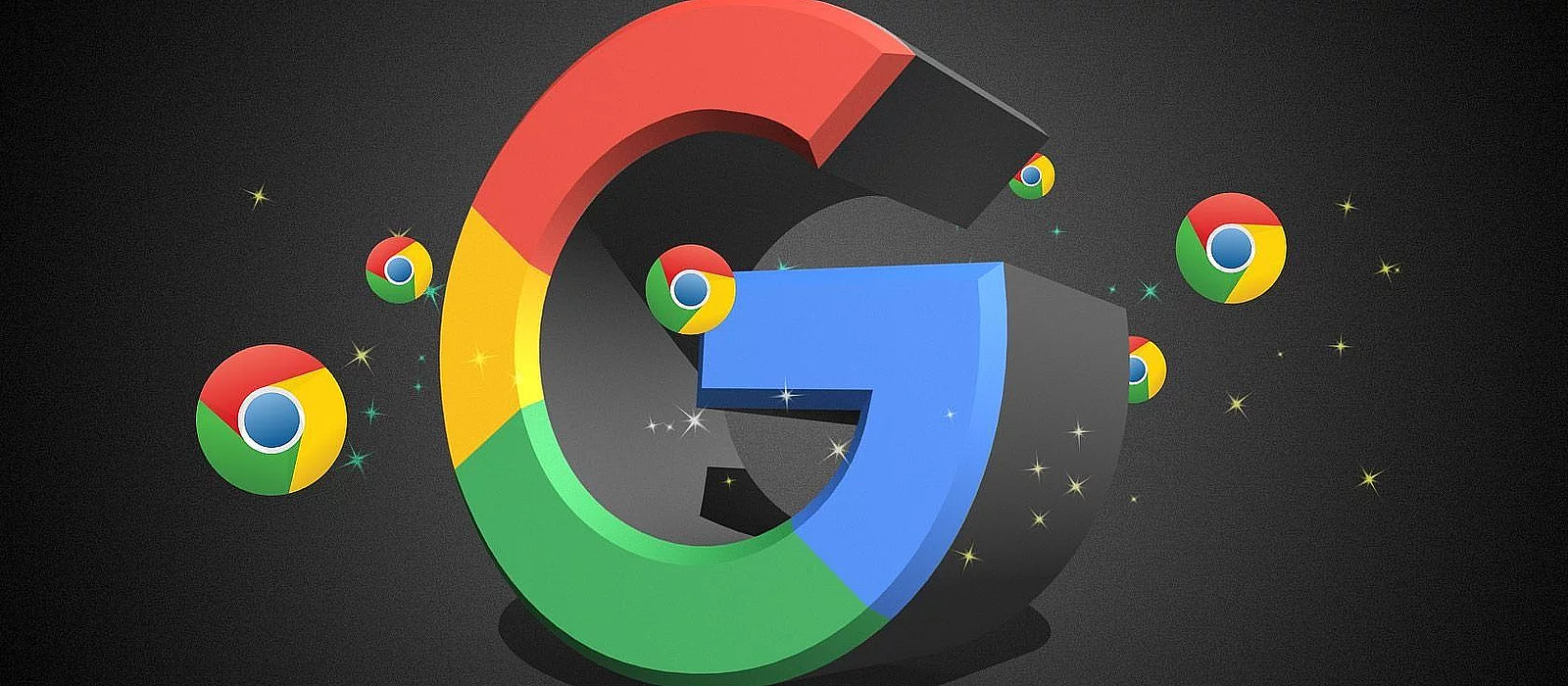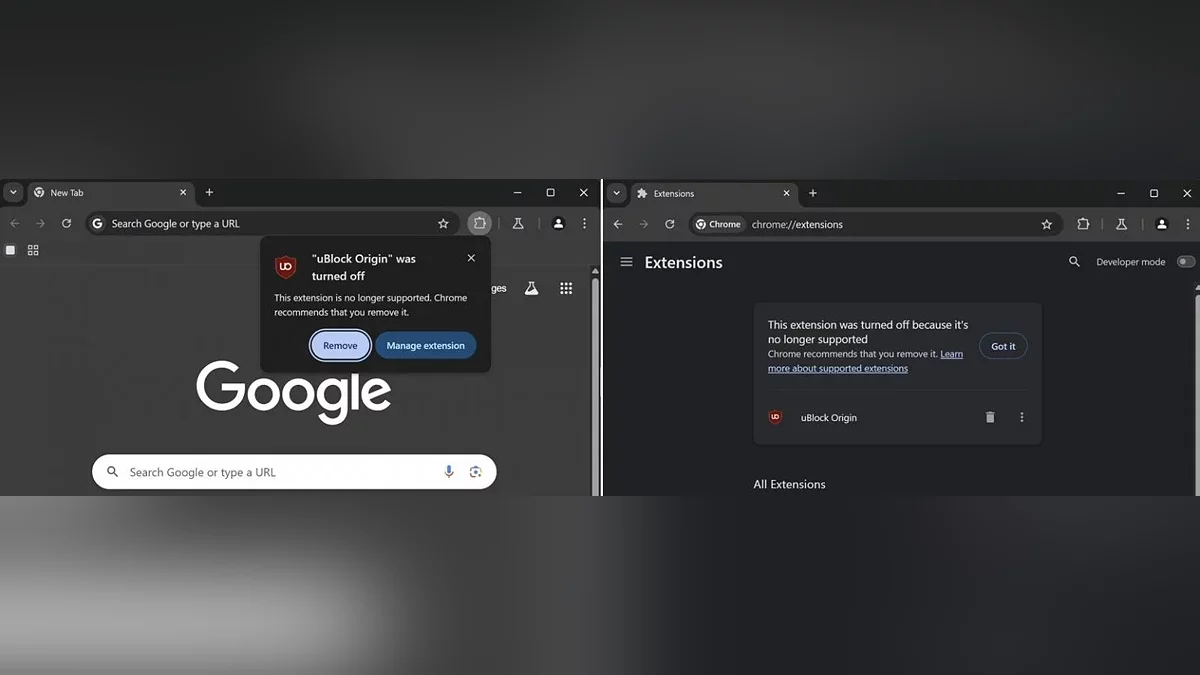Google Has Launched a «Silent War» on Ad Blockers: Popular Ad Blocking Tools Are Failing

Google Chrome users around the world are experiencing the sudden deactivation of one of the most trusted ad-blocking tools— the uBlock Origin extension. Google is pushing ahead with the rollout of the new Manifest V3 specification, which, according to its developers, is designed to boost data protection and speed up Chrome. However, this innovation has a dark side: extensions built for the previous Manifest V2 are losing access to critical features. In particular, ad blockers can no longer filter content as flexibly, since Manifest V3 restricts access to network requests and bans the use of remote scripts.
According to BleepingComputer, the deactivation of uBlock Origin is occurring unevenly: on some devices the extension stops working altogether and prompts users to remove it, while on others it continues to function. Similar reports have flooded Reddit, where users are complaining not only about the disappearance of uBlock Origin but also other privacy-related tools.
Google has confirmed that the phase-out of Manifest V2 will be gradual. Corporate clients will be able to delay the transition until June 2025 through special settings, but for everyday users the migration has already begun. The browser is actively encouraging a switch to “trimmed-down” alternatives, such as uBlock Origin Lite (uBOL), developed by the creator of the original extension. However, reviews indicate that this version lacks the granular controls of its predecessor and is less effective.
This situation has sparked a wave of discontent among Chrome enthusiasts. Many are discussing switching to browsers like Opera, where support for Manifest V2 will remain intact. Meanwhile, Google has avoided providing direct comments on the timeline for completing the transition or the reasons behind its chosen strategy. Analysts speculate that the company is trying to balance advertisers’ demands with the risk of losing its user base. For now, users are left with a choice: either accept the limitations of uBOL, seek out workarounds, or switch browsers. One thing is clear—the era of all-powerful ad blockers in Chrome is coming to an end, raising fresh questions about the balance between security and freedom in the digital space.
-
Tactical OPS, a free mobile PVP shooter, is now available on Google Play
-
Ubisoft Announces Steps for Company Reorganization to Boost Operational Efficiency
-
Google releases first public beta of Android 16
-
Google Play Protect Now Detects Threats in Real Time with Major Security Upgrade
-
Introducing Opera Air: A New Browser Designed to Combat Digital Overload
